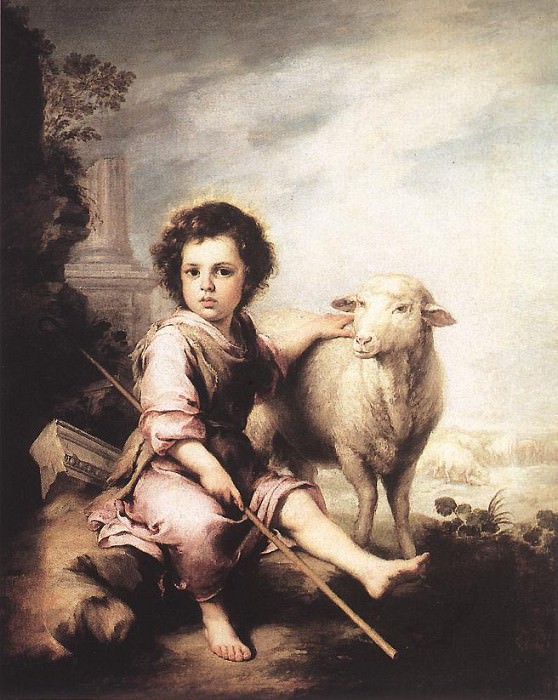The Good Shepherd
When Jesus was talking to the people, he often told them stories so that they could understand more easily what he was trying to teach them.
He said to the men, women and children who came to listen to him; 'If you have ears, hear what I say.
One day. Jesus told them a new story; 'If a shepherd has a hundred sheep to look after and one of them wanders off and gets lost, what does the shepherd do?
He asked. 'He leaves his ninety-nine sheep, Jesus went on, 'Where he knows they'll be safe from hungry wild animals, and goes to look for the one missing sheep.
'The shepherd searches everywhere for that one sheep, listening all the time to hear it bleating. However long it takes, he doesn't give up until he finds it.
Then he picks up the sheep, puts it on his shoulders and carries it home, delighted that he can take it safely back to the rest of the flock.
Then he calls his family and his friends to come and celebrate with him that he has found his one lost sheep.
'There is more joy in Heaven, continued Jesus.
'When someone who has disobeyed God and led a bad life is sorry for what he or she has done, and comes back to live as God wants them to do.
'I am like that good shepherd, Jesus told the people.
'I look after my people as if they were my sheep. I never run away and leave them when wolves try to kill and eat them.
The sheep know my voice and follow me. I lead them and protect them. I am ready to die for them.













Comments
Post a Comment